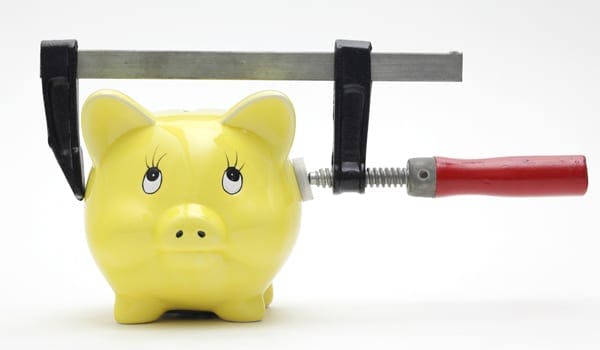These days it’s not uncommon to see headlines about the rising cost of living blazoned across our nation’s newspapers.
Australia is a prosperous country and we are all very fortunate to live and work in this great place. The growing cost of living, however, cannot be downplayed or ignored. It’s having an effect on everyone – in particular small business people.
Recently, Deutsche Bank published results from their survey The Random Walk – Mapping the World’s Prices 2013. It showed that as a country we are now number one – not in sporting titles but in the cost of many goods and services – many of which are utilised every single day by our country’s two million small businesses.
According to this report, hiring a car daily in Australia is more expensive than some of the best car manufacturing countries in the world – Germany, United Kingdom, France and Japan.
Obviously most cars can’t operate without petrol and Australia’s average price for a litre is $1.69 up by 14 cents from last year, making it more expensive than the 17 other countries in this category. Interestingly, petrol increased by over a dollar per litre in Sydney over the last 10 years.
And most small businesses require technology to run efficiently. In Australia, Apple’s most universally popular productivity tools – the Macbook ($1,690.97) and iPhone ($819.33) cost more here than anywhere else in the world.
Furthermore, we are among the highest prices for office space rentals in the CBD, public transport, taxi fares, business school tuition fees and a 1kg loaf of bread has increased by over four dollars in Sydney over the last 10 years – no wonder office kitchens look rather bare these days.
It’s pretty clear that every aspect of a small businesses operation is affected by this hike in cost of living, because for small business so much of this is also the cost of doing business. Urgent attention is needed to ease the burden these costs are placing on industry.
Over the last four years the 29 new and increased taxes, 21,000 new regulations and record government borrowing and deficits are taking their toll on the economy and, in particular, confidence. Ultimately this has made life tougher for small businesses.
The 2013 Federal Budget provides the Government with an opportunity to do something positive to help small business.
The long-promised but now-vanished budget surplus would ease the pressure on interest rates facing many small businesses. This would free up small businesses to cash and reduce operating expenses which have soared in recent times.
The next thing that must happen is to stop introducing new business related taxes, and cut wasteful taxes that have driven small business operating costs through the roof. The Carbon Tax must go. It is all economic pain for no environmental gain. Eliminating it would reduce operating costs for all small businesses.
The Government must also use this budget to announce reform of the regulatory burden they are imposing on small business. They have added over 20,000 new regulations that need to be complied with.
Many small businesses, however, don’t have a legal compliance team – they have mum, dad and some help with admin. If the Government was serious about helping small businesses in this budget they would announce reforms to slashing unnecessary regulation.
The Federal Budget will be handed down on May 14 2013. As a passionate advocate of small business, I look forward to its release and sincerely hope the budget addresses the concerns of the two million small businesses across Australia.

